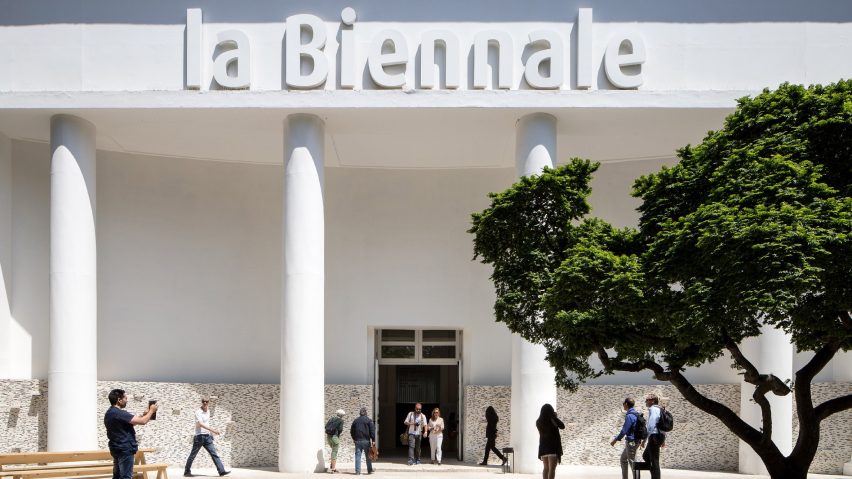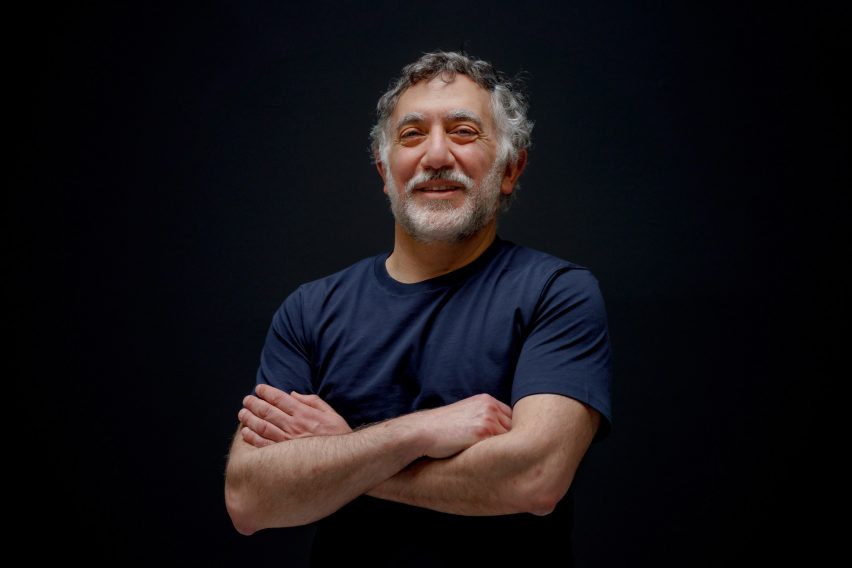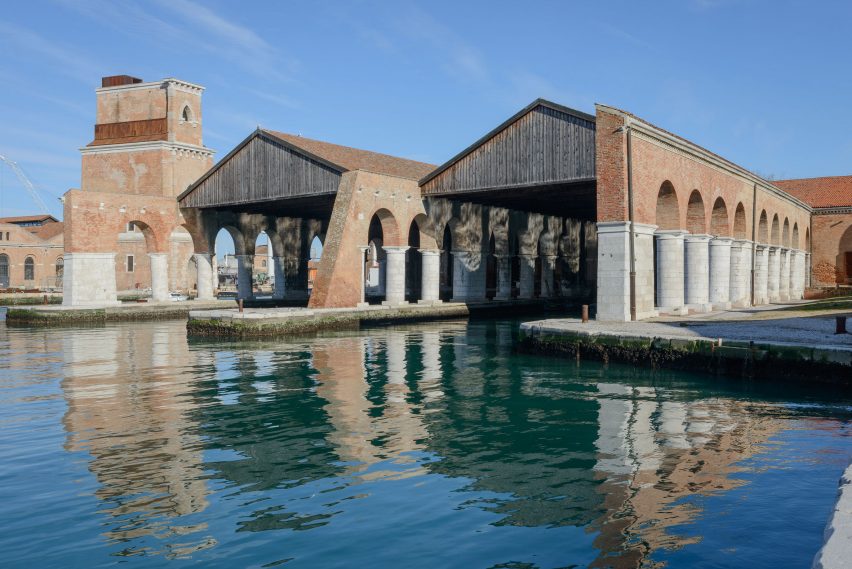
Venice Architecture Biennale "could be doing better" to increase diversity, curator says
Just 25 per cent of participants at this year's Venice Architecture Biennale are women and only one third are from outside Europe and the USA, despite making "a conscious effort" to increase diversity.
Figures provided by the biennale, which opens to the public on Saturday, show there are 72 female participants and 213 male participants.
Of 126 participating architecture firms, 67 per cent are from Europe and the USA. Just six per cent are from Africa and 12 per cent from Asia.
South Americans make up eight per cent and firms from "Paesi Arabi" make up four per cent.

Curator Hashim Sarkis told Dezeen the event "could be doing better in upcoming biennales" to increase diversity.
"It's a profession that has not been open to diversity until recently, and we have a long way to go to get there," he said.
A spokesperson for the biennale said the number of women has increased compared to the last biennale in 2018, but could not give details.
"The proportion compared to 2018 requires extensive research that we cannot do in these days," the spokesperson said.
Diversity a central theme of 2021 biennale
This is despite Sarkis, a Lebanese architect and dean of architecture and planning at MIT, making diversity a central theme of the biennale.
The 17th edition of the show, which is the most important event of its type in the world, is titled "How will we live together?" In his statement explaining the theme, Sarkis said the event should be "inclusive of other peoples, of other species, appealing to a more empathetic understanding of architecture."
One of the five organising themes of the exhibition in the vast Arsenale is "Among Diverse Beings".
In an interview with Dezeen ahead of the opening, Sarkis told Dezeen: "Biennales past – maybe two generations ago – were about Europe and North America showing the rest of the world where the avant-garde is going, and the rest of the world coming to Venice in order to copy it."
"This is very different now," he said. "It's the world coming to show their solutions, their ideas in Venice, and for Northern Europe and the United States to come and see how architectural imaginary and novel solutions come from everywhere."

Of the 17 editions of the biennale, 15 have been directed or curated by men. The 16th edition in 2018, titled Freespace, was curated by Irish architects Yvonne Farrell and Shelley McNamara of Grafton Architects.
The 12th edition in 2010, titled, "People meet in architecture," was directed by Japanese architect Kazuyo Sejima.
All other previous editions have been headed by white men.
"I am not introducing any new effort here," Sarkis said. "I feel like the Biennale has been working very hard to build more equity and diversity in its culture. As you know in every setting, we have a long, long way to go but every step matters, every effort counts."
"And in this biennale I feel we have been more equitable than before and we will continue to do so,' he added. "I think the biennale will continue to do so. I mean, my role ends here."
Biennale got "very close" to diversity targets
Sarkis said there was "a conscious effort" to bring more diverse voices to the biennale.
"The way that we've thought about it in terms of invitation was just where is it that we can get interesting work?" he explained. "And as we started looking at that we realised that it is actually very diverse."
"But that doesn't mean that we did not use diversity as a way to calibrate the choices we did, there was a conscious effort there."
"Did we get where we want to be? We got very close, but I think we could be doing better in upcoming biennales when hopefully this will be a question that becomes answers itself by virtue of what you're seeking in the work, rather than by trying to answer it indirectly."
"But the worst injustices will not go away very soon," he added. "And we have to keep them front and centre and talk about them, address them. Try to solve them in everything we do, under every stone we build."
"It's a profession that has not been open to diversity until recently, and we have a long way to go to get there. And as I said this is just one step in that direction."
"A biennale cannot solve all of the inequalities of the world," he concluded. "But we try."
Photography is by Andrea Avezzù courtesy of the Venice Biennale.
The Venice Architecture Biennale takes place from 22 May to 21 November 2021. See Dezeen Events Guide for all the latest information you need to know to attend the event, as well as a list of other architecture and design events taking place around the world.